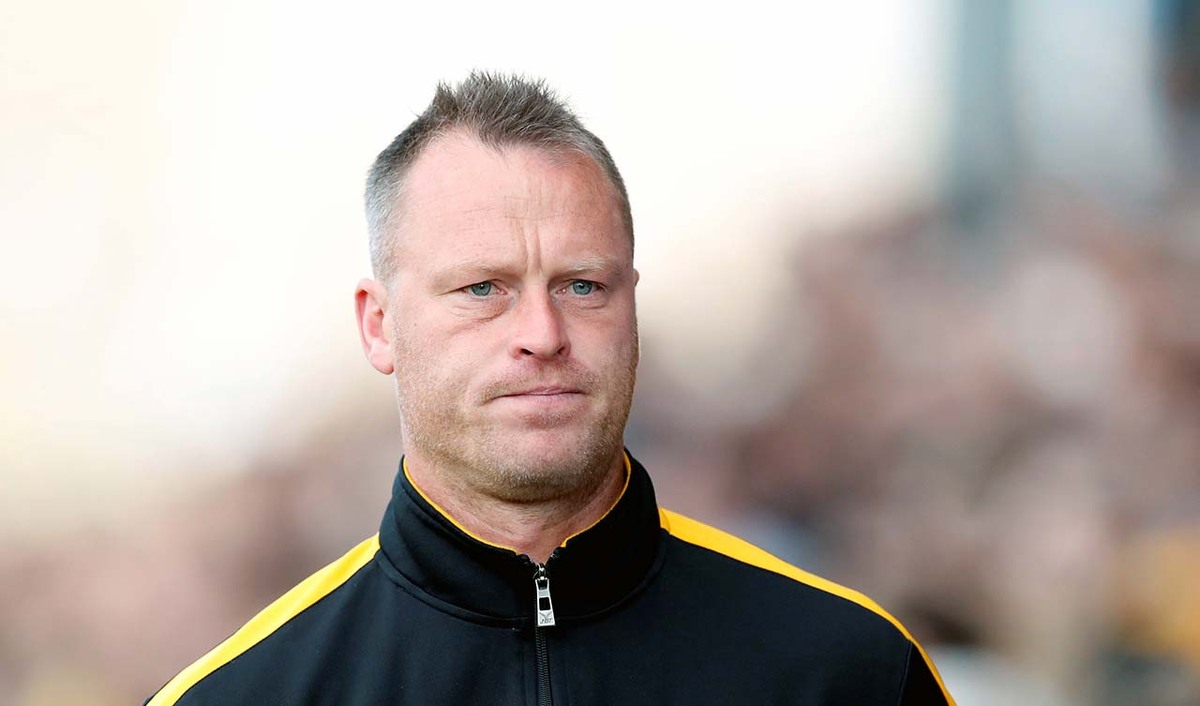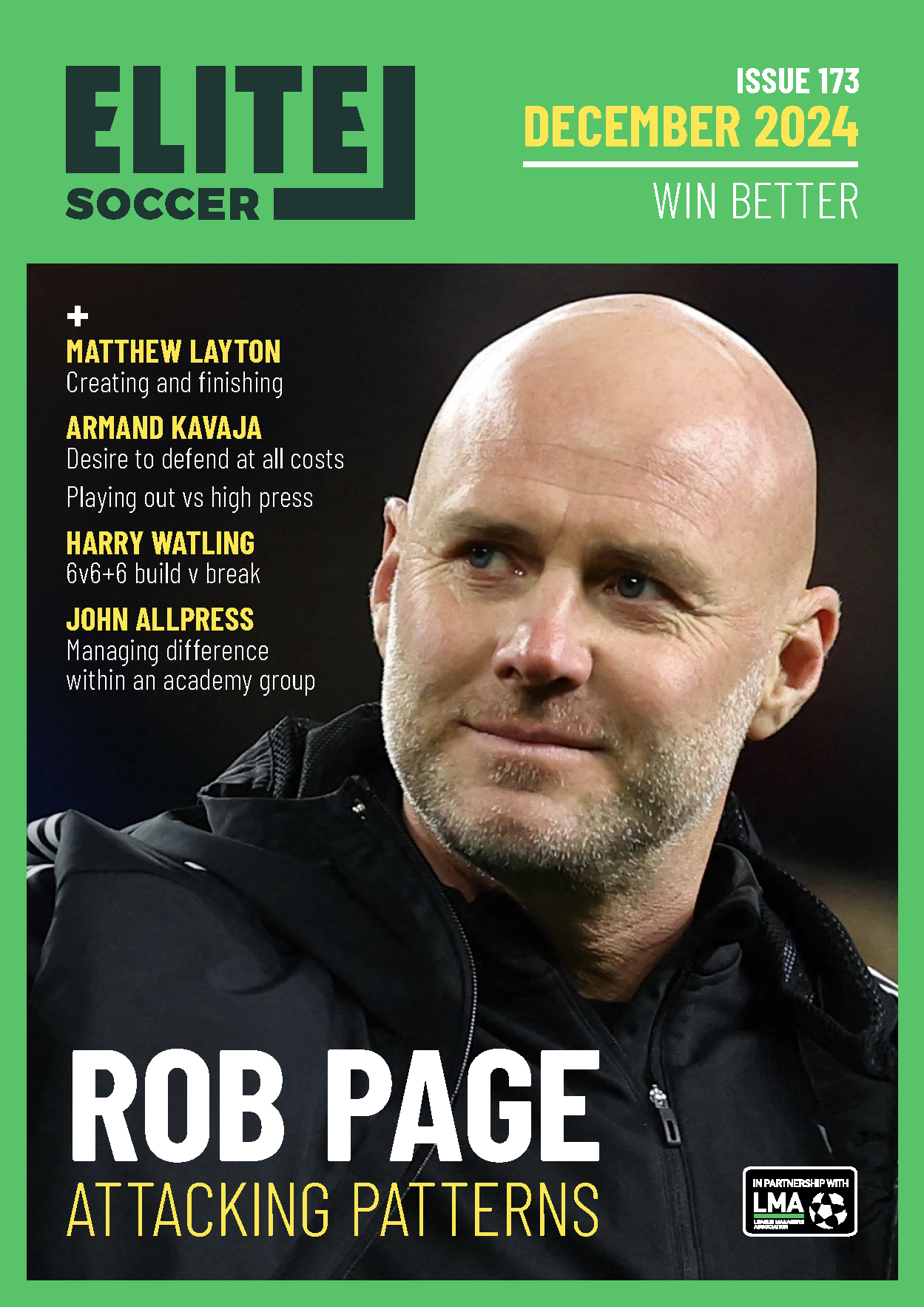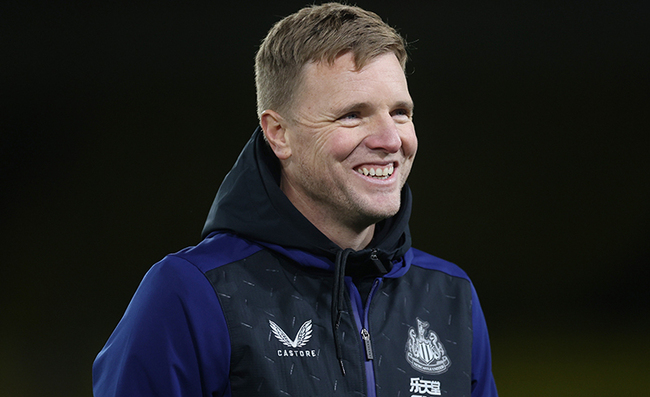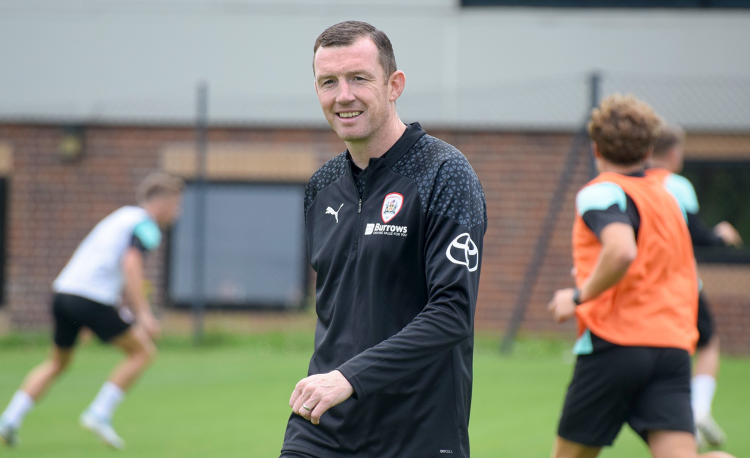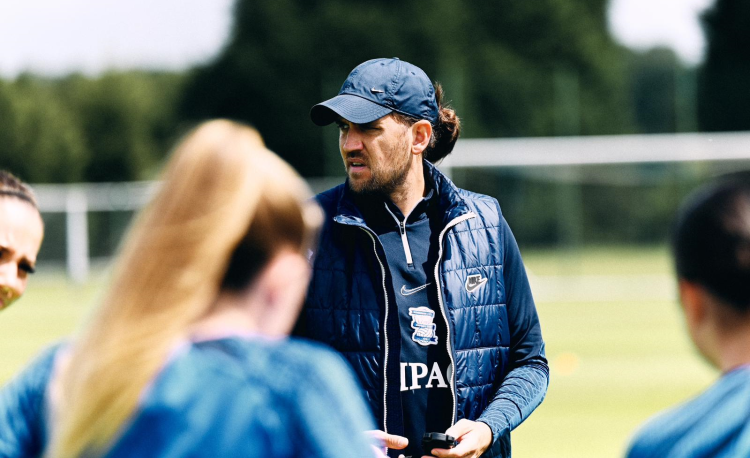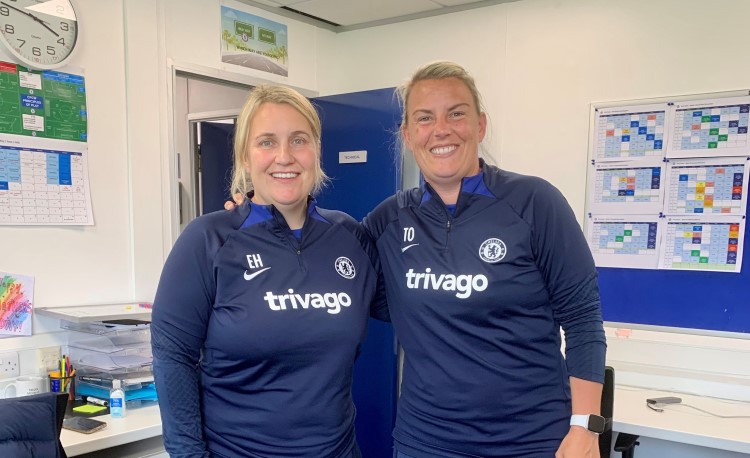You are viewing 1 of your 1 free articles
Hometown gaffer
Newport County manager Michael Flynn talks to the LMA about the highs and lows of his career in coaching so far
Michael Flynn’s introduction to football management was a baptism of fire that saw him fighting to keep his hometown club, Newport County, in the Football League. Having escaped the drop, his team went on to achieve two impressive season finishes and several FA Cup upsets, and narrowly missed out on promotion to League One after defeat in the play-off final.
“After doing my A-Levels, I became a postman”
I came into the professional game via non-league football. I’ve always believed it was important to continue my education and, while I’ve got my pro-licence, a degree and a diploma in leadership and management, I’m always looking out for the next course I can go on. That will now be the LMA Diploma in Football Management.
I encourage my players to do the same, helping them to stay in the game for as long as possible, but also preparing them for when they retire. The same goes for my staff. We do various CPD activities together and I think it’s important that they have time off or away from the club, so they can come back with new ideas and a fresh mindset.
“I was a player just a few years ago.”
When I was given the full-time manager’s job at Newport County, I was aware of my lack of experience. However, I’d been in the game for a long time and had held various other roles at the club, including academy manager, football and business director and first-team coach.
I understood what the fans wanted and I knew the club inside out.
When you understand how a club operates, what makes its people tick and the dynamics within the club, you are better positioned to unite everyone and try to make improvements. When things are happy off the pitch they tend to be happy on it, and vice versa, so if, say, you’re having a dispute with the board, you’ll find it difficult to get the best out of your people.
“I’m a director of an estate agency.”
In that business I meet new people every day, whom I treat with respect. I take the same approach with the players. I’m also open and honest with them, so if I make a decision that not everyone is happy with I’ll make sure I explain why. They might not agree, but I find that if you allow them to understand your reasoning they respect and accept your decision more readily. They also tend to work harder to get back into your team.
“These days, knowing football isn’t enough.”
You can’t go to a club and focus only on the game and tactics. You’re accountable for everything, not just the results on the pitch, but budgets, recruitment and the business side of things. You have to be tuned in to all that’s going on at the club.
“Having the right support is vital.”
When I became manager of Newport County, I brought Lennie Lawrence in as first-team management consultant. Lennie has managed over 1,000 games, so he was able to draw on that wealth of experience to help me get through whatever situation I was dealing with, especially in those very early days in the role.
He complements the way I work, and it’s good to have people like him around you who are prepared to tell you what you need to hear, rather than what you want to hear. He’s a great figure to have around for the players, too, because they know and respect him and when he speaks it gives extra weight to our messages.
“We survived because of our togetherness.”
When I took over, we had just 12 games left to try to stay in the Football League and most people had written us off. I didn’t have time to worry about the technical side of things and psychologically I think the players were given a boost when I came into the role. We focused on where we could make a difference in terms of tactics and the social element. As well as tweaking a few things in our game, I knew I’d need to get everyone, on and off the pitch, fully engaged and involved with what we were doing.
There were players who might not be selected for match day, for example, who we’d need to call on further down the line, so it was important that we got everyone’s buy in. I made it clear that all the players, even injured ones, were welcome to eat, change and travel together, because everyone needed to feel that they were involved and valued, and that they could contribute to the massive fight we had on our hands.
“Recruiting for character is essential.”
We went on to reach the play-offs the second season after the great escape and I think momentum played a big part in that. The side still had the confidence that they could go out there and win matches. We had quite a big turnover of talent that year, but I held onto a core group of players, which I think was really important in keeping that momentum going.
When we were recruiting, we changed our strategy to look not just at the type of player we needed for the squad, but also the personalities that would complement it. I think, on the whole, we got it right and it made us stronger, not only on the pitch, but off it, too. A number of our players got involved with work in the community, which gave them a stronger bond with the supporters and the club.
“I try to stay level-headed.”
Expectations on us changed and I welcomed that, because I want us to be taken seriously as a team. We don’t have the biggest budget, but success isn’t all about that. We consistently punch above our weight, and I think that’s partly because we’re all working together from the same page. That’s a credit to the staff and the players and I’m very proud of what we’ve achieved so far.
I put pressure on myself, too, and perhaps more so because of my long-standing connection with Newport. I feel greater satisfaction when we do well, but also greater pressure to succeed, because I want the club to do well for everyone around me. That can’t always happen, but I try not to get too downhearted when we lose and remain as level-headed as possible when we win. If you can enjoy the good moments and learn from the bad ones, it makes you a better manager. It helps that I have a young family that demands my attention; we all try to switch off from the game when we can.
“You have to work hard and be patient.”
I want to get some promotions on my CV; we got so close last season, but missed out in the last minute of extra time.
I learned a lot from that experience, though. While the disappointment hit me hard, I coped better than I thought I would and was able to move on quite quickly. I knew that once it had happened there was nothing we could do about it. My focus had to be on the next season, which was only a matter of weeks away, and there was no point wasting time and energy on things I couldn’t change.
I want to manage at the top, but I’m realistic and
I know I’ll have to get there in stages and that it will require a lot of hard work, not least to earn people’s trust. I have no problem with that; I’ve worked hard to get where I am today and have been through some tough times, not only in the game but in life. You have to take small steps and take opportunities when they come along.
Editor's Picks
Using the goalkeeper in build-up play
Pressing principles
Intensive boxes drill with goals
Penetrating the final third
Creating and finishing
My philosophy
Pressing initiation
Compact team movement
Defensive organisation
Coaches' Testimonials

Alan Pardew

Arsène Wenger

Brendan Rodgers

Carlos Carvalhal

José Mourinho

Jürgen Klopp

Pep Guardiola

Roy Hodgson

Sir Alex Ferguson

Steven Gerrard
Related
Unlocking the wing backs
Building the attack and third player runs
Play around to play through
Coaches' Testimonials

Gerald Kearney, Downtown Las Vegas Soccer Club

Paul Butler, Florida, USA

Rick Shields, Springboro, USA

Tony Green, Pierrefonds Titans, Quebec, Canada
Join the world's leading coaches and managers and discover for yourself one of the best kept secrets in coaching. No other training tool on the planet is written or read by the calibre of names you’ll find in Elite Soccer.
In a recent survey 92% of subscribers said Elite Soccer makes them more confident, 89% said it makes them a more effective coach and 91% said it makes them more inspired.
Get Monthly Inspiration
All the latest techniques and approaches
Since 2010 Elite Soccer has given subscribers exclusive insight into the training ground practices of the world’s best coaches. Published in partnership with the League Managers Association we have unparalleled access to the leading lights in the English leagues, as well as a host of international managers.
Elite Soccer exclusively features sessions written by the coaches themselves. There are no observed sessions and no sessions “in the style of”, just first-hand advice delivered direct to you from the coach.
